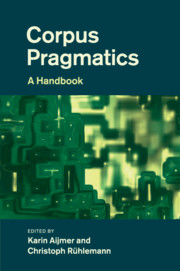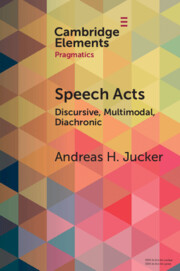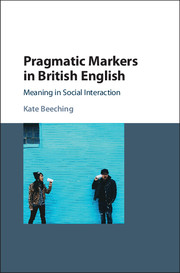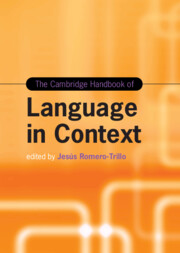Corpus Pragmatics
Corpus linguistics is a long-established method which uses authentic language data, stored in extensive computer corpora, as the basis for linguistic research. Moving away from the traditional intuitive approach to linguistics, which used made-up examples, corpus linguistics has made a significant contribution to all areas of the field. Until very recently, corpus linguistics has focused almost exclusively on syntax and the lexicon; however corpus-based approaches to the other subfields of linguistics are now rapidly emerging, and this is the first handbook on corpus pragmatics as a field. Bringing together a team of leading scholars from around the world, this handbook looks at how the use of corpus data has informed research into different key aspects of pragmatics, including pragmatic principles, pragmatic markers, evaluation, reference, speech acts, and conversational organisation.
- The first ever handbook on corpus pragmatics as a field
- Brings together a team of leading scholars from around the world
- Covers pragmatic areas of essential interest, such as pragmatic principles, speech acts, reference and evaluation
Reviews & endorsements
"Pragmatics and corpus linguistics are two major areas of linguistics which developed with very different trajectories from the 1960s and 1970s. This volume shows that they are now on convergent paths, and that corpus pragmatics is an emerging discipline in its own right."
Geoffrey Leech, Lancaster University
"This handbook focuses on the rapidly growing area of corpus pragmatics, filling a gap in the literature. All contributions present relevant pragmatic theory, a review of the earlier literature, and an original empirical study on authentic language data demonstrating how various corpus linguistic methods can be applied to pragmatic research tasks. These studies offer fresh insights and serve as models and inspiration for future scholars."
Irma Taavitsainen, University of Helsinki
'Corpus Pragmatics: A Handbook is a must-read for researchers interested in the area of corpus pragmatics as well as for scholars with interests in related areas of language use that could benefit from corpus-based approaches. It provides an excellent overview of the field of corpus pragmatics as a whole, and it offers a collection of articles that are interesting, informative, and well written.' Lamont D. Antieau, The Linguist List (linguistlist.org)
‘Corpus Pragmatics is a rich depository of information for graduate students and researchers. The authors successfully met the goal of overviewing and expanding the field of corpus pragmatics by keeping the right balance between theoretical background and practical aspects of analysis, including specific empirical authentic examples from corpus data … The handbook sheds light both on the achievements and the existing challenges related to using corpora for pragmatic research … Corpus Pragmatics provides a solid repository of knowledge and new research avenues for everybody who wants to further explore and contribute to this fascinating linguistic field.’ Oksana Bomba, LINGUIST List
Product details
December 2019Paperback
9781108810449
264 pages
230 × 152 × 25 mm
0.7kg
38 b/w illus. 39 tables
Available
Table of Contents
- Introduction. Corpus pragmatics: laying the foundations Christoph Rühlemann and Karin Aijmer
- Part I. Corpora and Speech Acts:
- 1. Speech acts: a synchronic perspective Paula Garcia McAllister
- 2. Speech acts: a diachronic perspective Thomas Kohnen
- 3. Speech act annotation Martin Weisser
- Part II. Corpora and Pragmatic Principles:
- 4. Processibility Gunther Kaltenböck
- 5. Relevance Gisle Andersen
- 6. Politeness Giuliana Diani
- Part III. Corpora and Pragmatic Markers:
- 7. Pragmatic markers Karin Aijmer
- 8. Stance markers Bethany Gray and Douglas Biber
- 9. Interjections Neal Norrick
- Part IV. Corpora and Evaluation:
- 10. Evaluative prosody Alan Partington
- 11. Tails Ivor Timmis
- Part V. Corpora and Reference:
- 12. Deixis Christoph Rühlemann and Matthew Brook O'Donnell
- 13. Vagueness Winnie Cheng and Anne O'Keeffe
- Part VI. Corpora and Turntaking:
- 14. Turn management and pauses Gunnel Tottie
- 15. Turn management and backchannels Pam Peters and Deanna Wong
- 16. Co-constructed turntaking Brian Clancy and Michael McCarthy.





